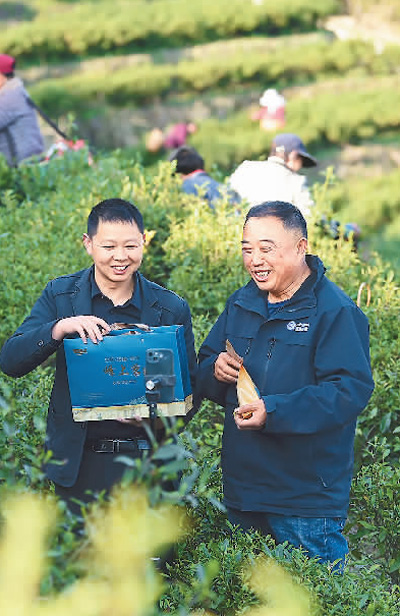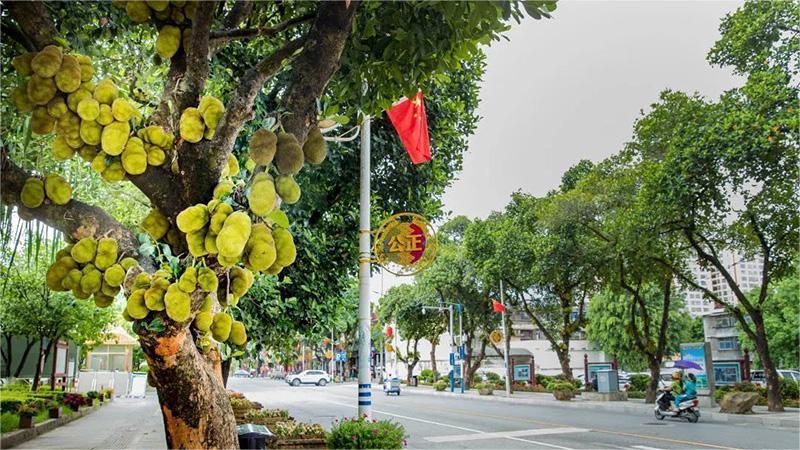Regions across China cultivate livestream hosts to boost rural e-commerce

Members of a cooperative advertise lotus flowers during a livestream in Xiangyang village, Yishan township, Guanyun county, east China's Jiangsu Province. (Photo/Wu Caihong)
The emergence of "new farmers," including livestream hosts who help sell products, has injected vitality into the development of China's rural e-commerce.
Regions across China are nurturing farmer-turned-livestream hosts through means including various skill training programs. Some places are organizing farmers to obtain skill-level certificates. Livestream e-commerce has become a significant platform for "new farmers" to start businesses.
Zhang Baorui, a rose farmer born in the 1970s in Huixian, a county-level city administered by Xinxiang city in central China's Henan Province, has become a capable livestream host and created over 130 jobs. Her annual sales volume exceeds 6 million yuan ($825,377).
"Now, I'm no longer nervous while holding a livestream session, thanks to the training activities organized by the government," Zhang said.
She decided to become a livestream host after learning about free livestream e-commerce training offered by Huixian city's e-commerce public service center. At the center, she acquired skills in video shooting and editing, and copywriting. The city's commerce bureau established an e-commerce demonstration base at her rose base and provided relevant equipment and technical support for her.

Members of a team advertise tea during a livestream at a tea garden in Shangfeng village, Jiaohu township, Wanzai county, east China's Jiangxi Province. (Photo/Deng Longhua)
Tang Jun, a livestream host with nine years of experience in holding livestreams to promote agricultural products in Liangping district, southwest China's Chongqing Municipality, had never imagined that he would become a livestream instructor. Liang has cultivated over 600 farmer-turned-livestream hosts.
At first, the district government gave a subsidy of 30,000 yuan and equipment, including a camera and a computer, to Liang. He later received training thanks to the support of the local government and made a name for himself as a livestream host.
The commission of commerce of the district regularly organizes e-commerce forums and meetings for farmer-turned-livestream hosts, and recommends outstanding trainees to attend livestream e-commerce activities at the municipal commission of commerce and Chongqing E-shops Association, Tang said.
Shexian county in Handan city, north China's Hebei Province established a livestream e-commerce association, opened an official account on popular short-video platform Douyin, and cultivated a batch of professional farmer-turned-livestream hosts by relying on its e-commerce industrial park that spans 2,200 square meters.
"We encouraged internet-famous Party chiefs of several villages and e-commerce talents in our county to teach livestream skills so as to nurture more farmer-turned-livestream hosts," said Wan Xiaofang, head of the county's publicity department.
According to a document recently issued by the Ministry of Commerce and eight other departments, China will nurture about 10,000 individuals who will play a leading role in rural e-commerce in five years.
Hebei Province recently released a three-year implementation plan on fostering talents to drive the growth of the digital economy. The plan aims to build clusters of digital professionals over the next three years.
Shexian county has launched a plan to establish a county-level livestream base with 17 branches. It has held 327 training and promotional activities and cultivated a batch of capable farmer-turned-livestream hosts.
Since the beginning of this year, the county has organized over 100,000 livestream sessions, attracting over 200 million views and selling local specialties worth more than 120 million yuan.
"We plan to roll out a brand sharing strategy to foster regional famous brands this year. As of early July, our county had a total of five geographical indication trademarks, five geographical indication products, and 11 agricultural product brands at and above the provincial level," Wan said.

A young Party member promotes cherry tomatoes during a livestream at a family farm in Jinzha village, Binhai township, Wenling city, east China's Zhejiang Province. (Photo/Zheng Lingfu)

Town government officials advertise loquats in a loquat planting base during a livestream in Guiwan village, Wengong township, Renshou county, southwest China's Sichuan Province. (Photo/Pan Shuai)
Photos
Related Stories
- Entrepreneur provides training sessions on livestream e-commerce for over 100 farmers
- Jasmine city blossoms through e-commerce businesses
- China pushes for construction of overseas warehouses
- SW China's trade fair signals cross-border e-commerce development
- China's online retail sales up 11.5 pct in January-April period
Copyright © 2024 People's Daily Online. All Rights Reserved.









